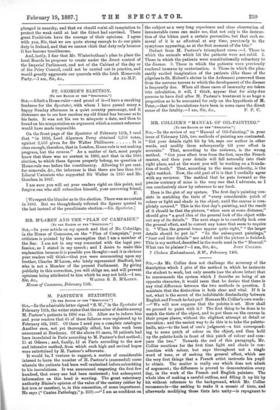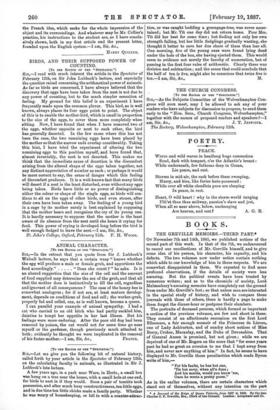Sra,—As Mr. Collier does not challenge the accuracy of the
description which I give of the method in which he instructs the student to work, but only asserts (see the above letter) that he recommends the system which I describe as being of an opposite character, it would seem that he denies that there is any vital difference between the two methods in question. I maintain that the distinction is both clear and vital. If it is not, what is the secret of the indubitable dissimilarity between English and French technique P Here are Mr. Collier's own words : —" We will now suppose that the palette is set. How shall we proceed to paint with it ? The first thing to be done is to match the tints of the object, and to put them on the canvas in their proper places, without the slightest attempt at detail or execution; and the easiest way to do this is to take the palette. knife, mix—to the best of one's judgment—a tint correspond- ing to some patch of colour on the object, and then hold up the palette-knife in front of this patch of colour and com- pare the two." Towards the end of this paragraph, Mr. Collier mentions for the first time light and shade in con- junction with colour, but says throughout not a single word of tone, or of seeking the general effect, which are the very first things that a French artist instructs his pupil to obtain. The matter is really one which does not admit of argument ; the difference is proved to demonstration every day, in the work of the French and English painters. The whole idea of making a careful outline, and filling it up bit by bit without reference to the background, which Mr. Collier recommends—the seeking to make it a mosaic of tints, and afterwards modifying those tints into unity—is repugnant to the French idea, which seeks for the whole impression of the object and its surroundings. And whatever may be Mr. Collier's practice, his instructions to the student are, as I have conclu- sively shown, both in my first article and the present letter, founded upon the English system.—I am, Sir, &c., HARRY QUILTElt.



































 Previous page
Previous page